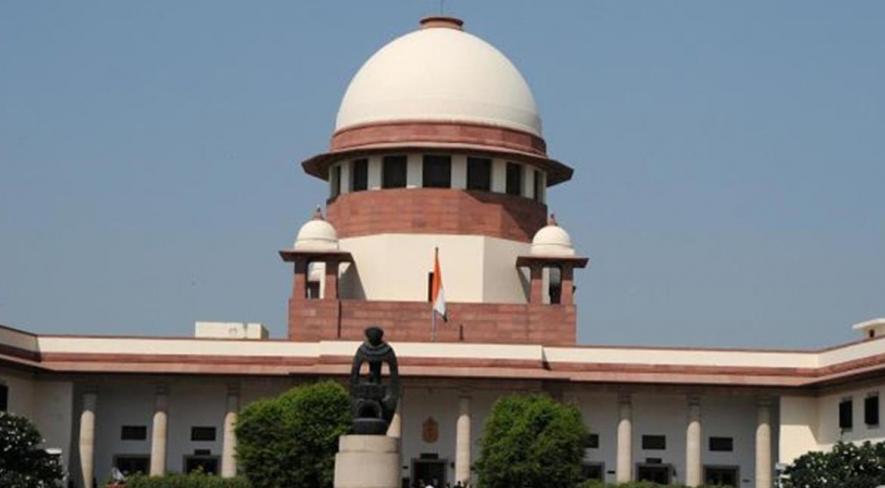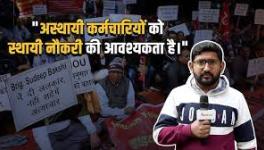Workers to Get 37% Hike as SC Upholds Delhi Govt Order on Minimum Wages

New Delhi: The Supreme Court has upheld a Delhi government notification issued in March 2017 that will result in a 37% hike in worker’s minimum wages. The case had been pending in courts for two years. All permanent, fixed term, contractual, casual as well as daily-wage workers will benefit from this order.
All objections raised by the employers’ were rejected by the Supreme Court as it made this wage hike final on Monday.
The Delhi High Court had stayed the Delhi government’s notification last year on August 4, based on a plea made before it by a number of associations of employers. A clutch of employers had argued in the High Court that the burden of minimum wages and its upward revision would cause them hardship that they would not be able to bear.
After the High Court ruling turning down the wage hike, the workers had appealed in the Supreme Court. An October 2018 order had given the workers interim relief. Accordingly, the Delhi government had constituted a Minimum Wage Advisory Committee in November 2018 that finalised the wages. This amounts to Rs14,842/month for unskilled workers, which was submitted before the Supreme Court.
On Monday, while hearing the case, the Supreme Court accepted this proposal of the Delhi government and asked it to notify the revised wages. This would be notified after the DA (Dearness Allowance) component is added to it.
The wage hike notified two years ago also came after an Advisory Committee under the Minimum Wages Act, had recommended it. The committee included five members, one each representing employers and employees and three government officials who were its ‘independent’ members. Now it is to be based on the new minimum wages notification as decided upon by the Minimum Wages Advisory Committee in January 2019, as per a press statement from Delhi CITU or Centre of Indian Trade Unions, which had become a party to the worker’s plea before the Supreme Court, and termed the judgement as “historic”.
The logic of the High Court, which had struck down the Delhi government notification, was circuitous. One the one hand, the court had asserted the constitutional validity of the Minimum Wages Act and also said that minimum wages should not just be “subsistence wages”. It had even reiterated earlier judgements which have held that some defects in the composition of an advisory committee or in its proceedings should not normally stand in the way of the final decision taken by the government, which is not bound by such recommendations.
Then, the judgement had taken a completely different tack: It side-stepped the Act’s mandate to protect workers from exploitation, refused to adopt the ‘beneficial construction’ approach, went into technicalities that precedent would not sanction and struck down the notification. The judgement then repeatedly criticised the Delhi government’s mission to raise wages, and in doing so it almost appeared to have adopted a counter-mission to overturn the hike.
On the one hand, the High Court had correctly pointed out that courts should not intervene in minimum wage fixation orders unless there were “most substantial grounds”. It had stressed that the Minimum Wages Act “clearly” existed to “prevent exploitation of labour” and dismissed the arguments of petitioners as “irrelevant”.
But, it also said that the employers and employees were not properly represented in the Advisory Committee of the Delhi government, that its advice, though not binding, needed to be considered with an open mind, and that the government appeared to have shown a prejudice towards both employers and employees. It said that the constitution of the Advisory Committee was completely flawed, and that it did not allow employees or employers a hearing, nor did it take into account various facts. Thus, it was held that the process of fixation of the wages violated the principles of natural justice.
Calling for this as “substantial ground” for intervention, the High Court had declared the notification as unconstitutional because it violated not only the Minimum Wages Act but also Article 14 (right to equality) of the Indian Constitution!
The hike announced in 2017 was substantial but it was still well short of the minimum wages given to central government employees by the Seventh Central Pay Commission, which amounts to Rs18,000 per month. The Delhi government had wanted to hike wages from Rs9,745 to Rs13,350 per month for unskilled workers, and similarly for semi-skilled and skilled workers, to be computed on a pro-rata or per day of work basis. Both the Delhi government and the Pay Commission claimed to have computed their wage levels based on the same source: the 1957 Indian Labour Conference recommendations, as approved and further added upon by the Supreme Court in a 1991 judgement.
Even now, the substantially hiked wages achieved through a long court battle leave room for further hikes by the Delhi government.
Get the latest reports & analysis with people's perspective on Protests, movements & deep analytical videos, discussions of the current affairs in your Telegram app. Subscribe to NewsClick's Telegram channel & get Real-Time updates on stories, as they get published on our website.
























